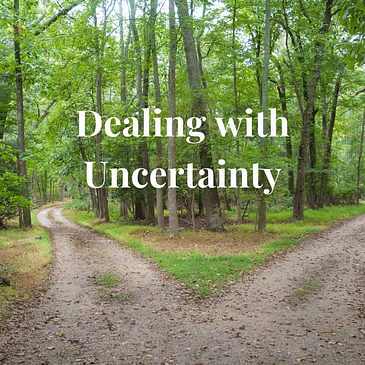Episode Description
Dealing with Uncertainty is something we all deal with. For those of us on the healing path, dealing with difficult emotions, and trying to work through trauma, uncertainty can be even more challenging bring up a lot of anxiety in the body at times. This episode discusses what to do during times of uncertainty from a trauma informed approach, how meditating scripture can be a healing balm during these times, and how practicing a strategy called "groundlessness" can help us deal with uncertainty. By accepting the nature of life and uncertainty with acceptance, surrender, and groundlessness, we can start to find, that ironically, we have God as our anchor and can create more stability at all times.
Breakdown of Episode
1:17 Intro to New Episode
4:47 Intro to Dealing with Uncertainty
8:45 What to Do During Times of Uncertainty
15:04 Scriptures for Dealing with Uncertainty
23:05 What is Groundlessness and How Can it Help Me?
Sources
- Psalm 91 for protection, God's presence, and God's comfort
- Season 1 Episode 20 of Christian Emotional Recovery, Acceptance, was referenced in the podcast and may be a good resource to supplement the concept of groundlessness.
Christian Emotional Recovery Resources
Podcast Website
Access Episodes, Get Free Resources, and More
https://christianemotionalrecovery.com/
Facebook Group
Join Community, Get Support, and Get Weekly Encouragement
https://www.facebook.com/groups/christianemotionalrecovery
YouTube Channel
Subscribe for Exclusive Material Not on Podcast
https://www.youtube.com/channel/UC4a5jGXZ0-qzPINAspnLwPw
Christian Emotional Recovery Store
Get meditations, infographics, journals, and other resources for your healing journey
https://www.rachelleroy.com/9527496b-b1ed-4744-875f-dd04bfd3ad2a
Trauma Survivors
Check out Resources Page for Trauma Survivors
https://www.rachelleroy.com/bc953a63-...

